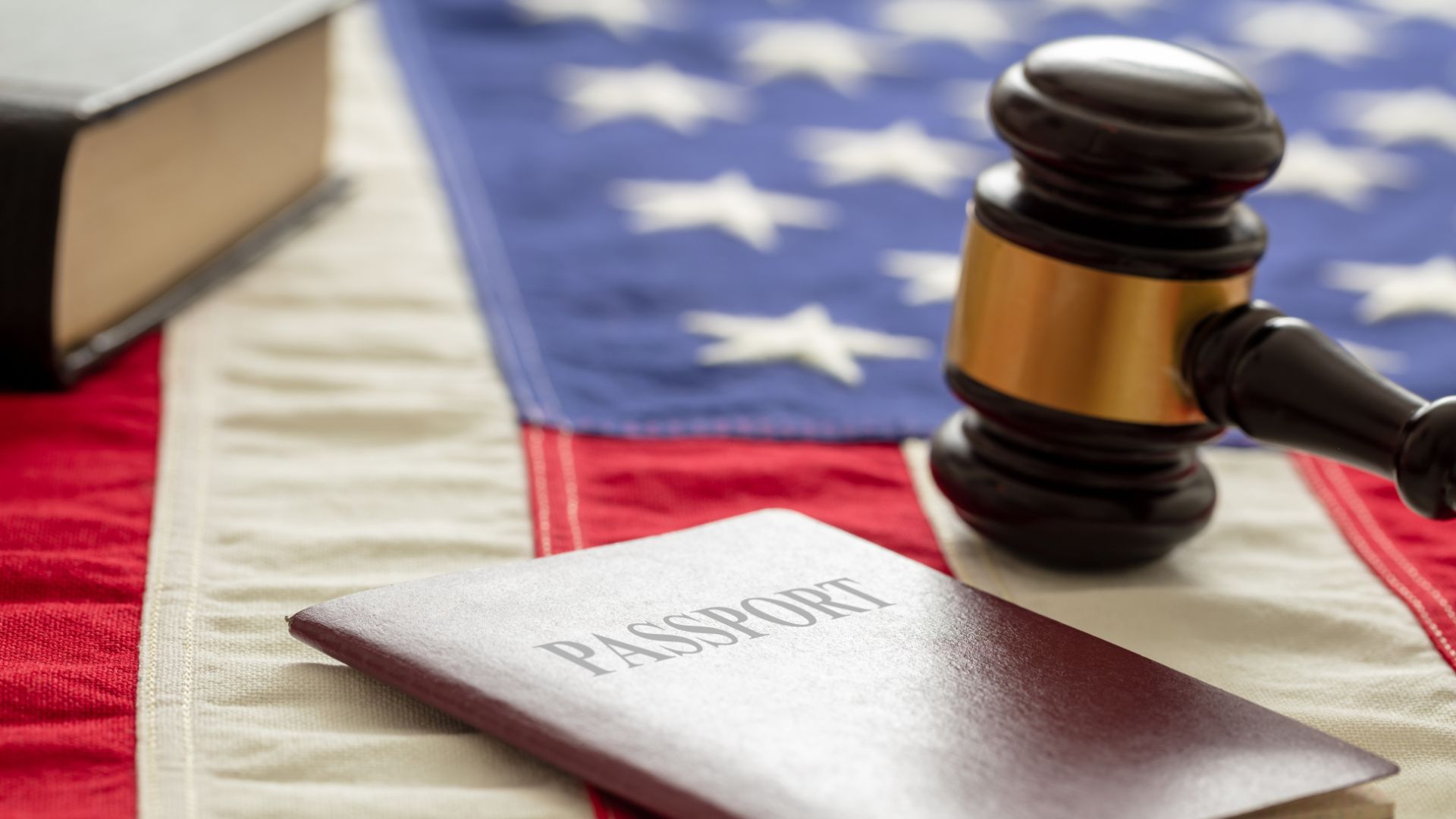For many immigrants in Nassau County, the citizenship ceremony is the most meaningful step in their immigration journey—a moment that represents not only legal status but belonging, opportunity, and pride. At Rebecca Black Law, P.A., we understand how emotional and significant this day can be. Having guided countless clients through the naturalization process, we know that preparation for your oath ceremony is just as important as passing your citizenship interview.
This guide walks you through what to expect before, during, and after your citizenship ceremony in Nassau County, Florida, and offers practical and legal tips to help you make the most of this milestone.
1. Understanding the Citizenship Ceremony
Once you have successfully completed your USCIS naturalization interview and your Form N-400 is approved, the final step is the Oath of Allegiance ceremony. This ceremony marks your official transition from lawful permanent resident (green card holder) to a United States citizen.
In Nassau County and surrounding areas, ceremonies may be held by U.S. Citizenship and Immigration Services (USCIS) or federal courts, often in partnership with local civic organizations. Some ceremonies are large and public, while others are smaller and administrative.
Key takeaway: You are not a U.S. citizen until you take the oath. Preparing properly ensures there are no delays or complications.
2. Receiving Your Oath Ceremony Notice (Form N-445)
After your naturalization approval, you’ll receive a Form N-445, Notice of Naturalization Oath Ceremony. This document is critical—it contains the date, time, and location of your ceremony, as well as important instructions.
Before the ceremony:
-
Review Form N-445 carefully. Ensure your personal information is correct.
-
Complete the questionnaire on the back of the form. USCIS requires you to confirm that your circumstances haven’t changed since your interview (e.g., no arrests, trips abroad, or changes in marital status).
-
Bring all required documents, including your permanent resident card (Green Card) and your appointment notice.
If you cannot attend your scheduled ceremony for a valid reason, notify USCIS immediately in writing and request rescheduling. Failure to appear without notice may lead to your application being administratively closed.
3. What to Bring to Your Citizenship Ceremony
Your citizenship ceremony preparation checklist should include:
-
Form N-445 (completed)
-
Permanent Resident Card (Green Card) — you will surrender this during the ceremony
-
Government-issued photo ID (such as a driver’s license or passport)
-
Any USCIS-issued travel documents
-
Family and friends (if permitted) — some ceremonies have space limitations
If you have special needs (e.g., mobility accommodations, hearing assistance, or language support), inform USCIS in advance.
4. What Happens at the Oath Ceremony
The ceremony is both a legal process and a celebration. Here’s what to expect:
A. Check-In and Document Review
USCIS officers will collect your Green Card and review your Form N-445 questionnaire. Any updates to your legal status must be disclosed honestly. Lying at this stage can result in denial of citizenship.
B. The Oath of Allegiance
This is the defining moment of your journey. You’ll stand, raise your right hand, and repeat the Oath of Allegiance, pledging loyalty to the United States and renouncing allegiance to any foreign nation.
C. Receiving Your Certificate of Naturalization
After taking the oath, you’ll receive your Certificate of Naturalization—proof of your U.S. citizenship. Before leaving, review it carefully for any spelling or personal information errors. Corrections can only be made through USCIS.
D. The Celebration
Many ceremonies include speeches, national anthems, or participation by local leaders. It’s a moment of pride—feel free to bring your family and capture photos to remember the day.
5. After the Ceremony: Your Next Legal Steps
Becoming a U.S. citizen opens many doors—but there are also important responsibilities and legal steps to complete right away:
1. Apply for Your U.S. Passport
Your Certificate of Naturalization allows you to apply for a U.S. passport immediately. Having a passport confirms your citizenship and makes international travel smoother.
2. Register to Vote
As a new citizen, you now have the right to vote. In Florida, you can register online or through local election offices—even at the ceremony in some cases.
3. Update Your Social Security Record
Visit your local Social Security Administration (SSA) office to update your record and change your status from “lawful permanent resident” to “U.S. citizen.” This ensures accurate government benefits and employment records.
4. Notify Employers and Financial Institutions
Provide copies of your new identification and citizenship status to your employer, banks, and other institutions as needed.
5. Protect Your Naturalization Certificate
Store it securely. Do not laminate it. If you need to replace a lost or damaged certificate, file Form N-565 with USCIS.
6. Legal and Immigration Considerations
Even after naturalization, certain legal considerations remain important:
-
Name Changes: If you changed your name during naturalization, ensure all official documents (passport, Social Security, driver’s license) reflect your new name consistently.
-
Dual Citizenship: The United States allows dual citizenship in some cases, but your country of origin may have restrictions. Consult an immigration attorney to understand how your new status affects prior nationality.
-
Family Petitions: As a citizen, you can now sponsor immediate relatives—spouses, children, and parents—for green cards without numerical visa limits.
-
Travel Caution: Avoid extended stays outside the U.S. immediately after naturalization, especially if you need to finalize passport or Social Security updates.
7. Preparing Emotionally and Culturally for Citizenship
Beyond paperwork and procedures, this is a deeply personal transition. You are now joining a community of citizens who share the rights and responsibilities of democracy. Consider:
-
Learning about voting rights and civic participation in Nassau County.
-
Joining local community or cultural organizations that celebrate new citizens.
-
Reflecting on what citizenship means to you—freedom, security, and opportunity.
At Rebecca Black Law, P.A., we often remind clients that citizenship isn’t just a legal status—it’s a new chapter in your life and a testament to your perseverance.
8. Common Mistakes to Avoid Before the Ceremony
Even at the final step, small errors can delay your citizenship. Here are frequent pitfalls we help clients avoid:
-
Failing to disclose legal issues on Form N-445
-
Missing the scheduled ceremony without notifying USCIS
-
Arriving without required documents or ID
-
Not checking the Certificate of Naturalization for accuracy
-
Not applying for a passport promptly
Having an experienced immigration attorney review your final paperwork can prevent these mistakes and ensure your ceremony proceeds smoothly.
9. How an Immigration Attorney Can Help
At Rebecca Black Law, P.A., our role extends beyond filing forms. We walk with clients through every step—from naturalization eligibility and interview preparation to the citizenship ceremony itself. We:
-
Review your Form N-445 and identify potential red flags
-
Prepare you for last-minute USCIS questions or changes
-
Attend your ceremony if legal complications are expected
-
Guide you on post-naturalization benefits and responsibilities
With over 15 years of experience dedicated exclusively to immigration law, we take pride in providing personalized, compassionate, and strategic representation for immigrants in Nassau County and across Florida.
Final Thoughts
Your Nassau County citizenship ceremony is a once-in-a-lifetime event—one that symbolizes not just success, but belonging. Preparing carefully, understanding your responsibilities, and seeking sound legal guidance can make this day stress-free and truly memorable.
At Rebecca Black Law, P.A., we’re honored to stand beside new Americans as they take this life-changing step. Whether you need help finalizing your citizenship paperwork, resolving delays, or preparing for your ceremony, our team is here to guide you every step of the way—with compassion, integrity, and the legal experience your journey deserves.




